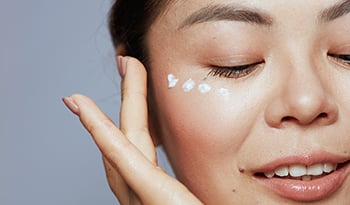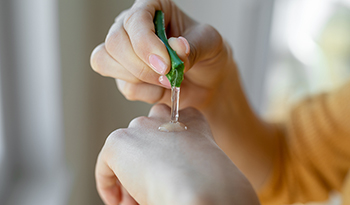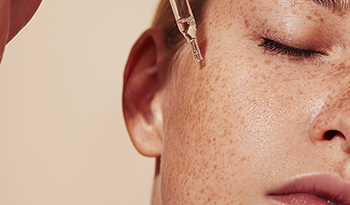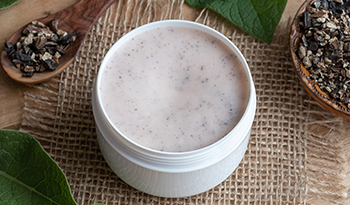Why Ginseng Is a Skincare Superhero: Anti-Inflammatory Benefits, Boost Collagen, Brighten Skin
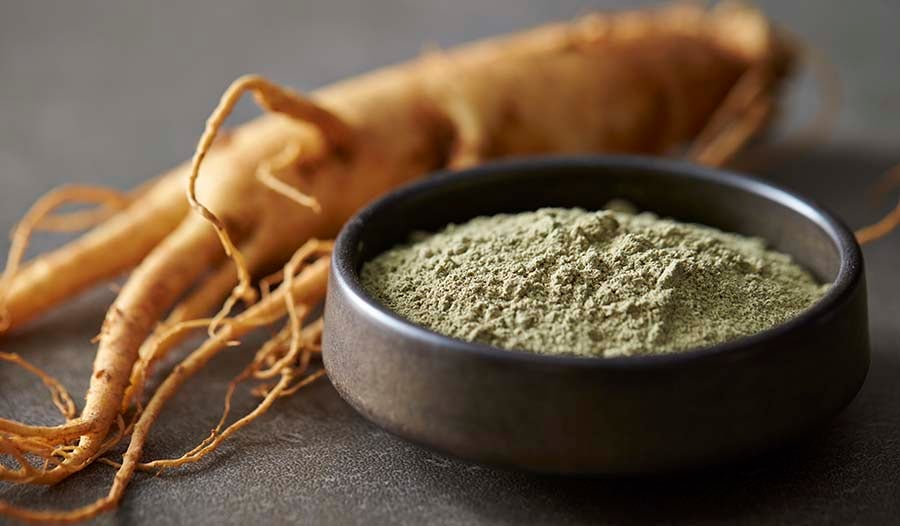
Ginseng is an ancient herb that was discovered over 5,000 years ago in the mountains of Manchuria, China. Ginseng was the most revered herb in ancient Korea, Japan, China, and America. It is an herb with many uses. The Latin name for ginseng is derived from the Greek panacea, meaning “that is for everything.” Initially only used by Chinese emperors, ginseng brought a flourishing international trade market to the region. Korea would trade silk and medicines with China in exchange for wild ginseng.
Ginseng is a rare and highly valued Chinese herb with a rich trading history and has a wide range of uses, including medicine, food, healthcare, and chemical manufacturing. Modern pharmacology research has revealed that ginseng exerts notable effects on the immune system, central nervous system, cardiovascular system, metabolism, and infectious diseases. As a result, ginseng and its products are widely used for eliminating fatigue, improving cognition, combating depression, preventing memory loss, and alleviating diarrhea and shortness of breath.
In addition to these purposes, ginseng is also consumed as a dietary supplement and functional food. Its popularity has made ginseng one of the most widely used herbal remedies across the globe.
Ginseng is also becoming a popular skincare ingredient in the West. However, in the East, ginseng for beautiful skin dates back centuries as an Asian beauty staple.
Top 4 Ginseng Skincare Benefits
Here, we’ll discuss the top four skincare benefits of topical ginseng.
1. Ginseng May Reduce Wrinkles and Signs of Aging
Wrinkles are one of the primary signs of aging skin. Some studies have found that using products with ginseng can help inhibit wrinkle formation.
One study found that skincare products containing Panax ginseng helped to increase skin moisture and reduce wrinkle formation. The study showed the combination of Panax ginseng and Crataegus pinnatifida (GC), a Chinese fruit, improved procollagen type I expression. Procollagen type I is reduced in photodamaged skin or skin negatively affected by ultraviolet radiation from the sun. Based on noninvasive measurements and skin roughness values, total roughness, maximum roughness, smoothness depth and average roughness, and global photodamage scores were improved by GC application. Moreover, GC ameliorated the high values of smoothness depth, which means that GC reduced the loss of skin moisture.
These results suggest that GC can prevent aging by inhibiting wrinkle formation and increasing moisture in the human skin.
Another study looked at the effects of fermented black ginseng (FBG) on human fibroblasts. Fibroblasts secrete collagen proteins that help maintain the structural framework of tissues, including the skin.
Fermented black ginseng is processed by repeated steaming and drying fresh ginseng, followed by fermentation with Saccharomyces cerevisiae. It is known to possess anti‑oxidative effects. Skin wrinkle development is associated with oxidative stress and inflammatory reactions.
Treatment with FBG at concentrations significantly increased the type I procollagen expression levels in the human fibroblasts. These results suggest that FBG has potential anti‑wrinkle effects and could be a promising ingredient in facial cosmetics.
Adding ginseng skincare products to your daily routine could help reduce the signs of aging and may help eliminate wrinkles.
2. Ginseng May Help Reduce Skin Puffiness and Inflammation
Puffiness in the skin could be a sign of poor blood circulation. When blood does not circulate properly, fluid can leak out of the blood vessels into the tissues. This can lead to water retention in the skin and a puffy appearance.
Some studies have shown that ginseng may help improve blood circulation. Specifically, Korean red ginseng’s effects on blood circulation were the focus of one study. The researchers used infrared thermal imaging, blood tests, and Doppler sonography to evaluate the blood flow of study participants.
The participants were given 1500 mg of Korean red ginseng extract or placebo for eight weeks. The imbalance in local thermal distribution was significantly decreased in the Korean red ginseng group, confirmed by digital infrared thermal images. There were no significant changes seen via blood analysis or Doppler sonography.
The researchers concluded digital infrared thermal imaging showed that the temperature deviation in the whole body decreased safely in the Korean red ginseng group. This result suggests that Korean red ginseng improves blood circulation in the human body.
With improved blood circulation, you have less risk of fluid retention and a swollen, puffy appearance.
The main active component of Panax ginseng is ginsenosides. Ginsenosides have been shown to have a variety of beneficial effects, including anti-inflammatory and antioxidant. Results of clinical research studies demonstrate that Panax ginseng may also improve psychological function, immune function, and conditions associated with diabetes.
Adding ginseng to your supplement routine could help reduce inflammation in the skin and throughout the body, reducing your risk of chronic illness.
3. Ginseng Could Help Brightening Skin
Hyperpigmentation is a common side effect of sun exposure, aging, injury, inflammation, and hormonal influences. Many people who are affected by hyperpigmentation are looking to whiten or brighten their skin.
A small study evaluated the skin-whitening effects of fermented black ginseng (FBG) in human subjects. The participants were instructed to apply 1% FBG cream to half of their face twice a day for eight weeks. The study found that skin color was significantly brightened using the FBG cream compared to a control cream.
The study also found that the FBG cream significantly lowered tyrosinase activity. Tyrosinase is a group of enzymes that contribute to your skin's pigmentation process called melanogenesis. It produces melanin that protects your skin from UV damage. However, this also may bring with it skin blemishes like dark spots and hyperpigmentation.
By inhibiting tyrosinase activity, FBG and other ginseng-based creams could brighten your skin for a more even skin tone and help erase dark spots for a more radiant glow.
4. Ginseng May Promote Skin Elasticity and Collagen Production
Collagen is a protein that functions as one of the main building blocks for your skin, hair, bones, muscles, tendons, and ligaments. Collagen is what keeps our skin from sagging and helps prevent wrinkles, giving you a plump, youthful appearance.
A study found that ginseng may help slow the loss of collagen, helping the skin maintain elasticity.
The study states red ginseng contains vitamins, essential oils, and fatty acids that can be used in skincare to delay the aging process. They investigated the effects of red ginseng treatment on skin elasticity by assessing cellular stiffness and measuring collagen protein synthesis.
Human dermal fibroblasts were treated with red ginseng, and the resulting changes in stiffness were investigated using atomic force microscopy. The stiffness of fibroblasts was significantly reduced by treatment with red ginseng. The results of the study indicate that the elasticity of the skin can be restored by red ginseng treatment.
If you are looking for a more youthful appearance, slowing the loss of collagen with ginseng skincare products could be right for you.
Ginseng Safety Precautions
Overall, ginseng appears to be well tolerated. Caution is advised about concomitant use with some pharmaceuticals, such as warfarin, oral hypoglycemic agents, insulin, and phenelzine.
With any new topical application, including ginseng, always do a patch test before use to ensure it does not cause irritation or an allergic reaction.
For orally ingested ginseng, use the following precautions.
People with high blood pressure should not take Asian ginseng products without their doctor's supervision. People who are ill or have low blood pressure should take caution when using Asian ginseng. People with bipolar disorder should not take ginseng because it may increase the risk of mania.
Panax ginseng seems to increase the activity of the immune system. It might make auto-immune diseases worse. Don't use Panax ginseng if you have any auto-immune condition. Panax ginseng contains chemicals (ginsenosides) that can act like estrogen. If you have any condition that might be made worse by exposure to estrogen, don't use Panax ginseng.
High doses of Panax ginseng have been linked with insomnia. If you have trouble sleeping, use Panax ginseng with caution. High doses of Panax ginseng have been linked with sleep problems and agitation in people with schizophrenia. Be careful when using Panax ginseng if you have schizophrenia.
Panax ginseng might make the immune system more active. This could interfere with the effects of medications that suppress the immune system, such as those given after an organ transplant. If your immune system is suppressed, don't use Panax ginseng.
Panax ginseng is possibly unsafe when taken by mouth during pregnancy. One of the chemicals in Panax ginseng has been found to cause birth defects in animals. Do not use Panax ginseng if you are pregnant.
Make sure you speak with your doctor or Chinese herbalist before consuming ginseng. Be sure to disclose any medications you may be taking to ensure there are no drug-herb interactions.
The Big Picture
Ginseng has a warming effect on the skin because it increases blood circulation. As a result, ginseng can aid in reducing puffiness and signs of aging. You can find ginseng in skincare products, including skin serums, toners, moisturizers, and cleansers. A leave-on treatment like a moisturizer could be most effective.
Whether you are looking to decrease wrinkles or other signs of aging like dark spots, research suggests using skincare products with ginseng is a viable solution. Increased collagen and elasticity, along with decreased inflammation and puffiness, are all potential benefits of ginseng for the skin.
Red ginseng and fermented black ginseng have the most research conducted regarding skincare benefits. Adding ginseng skincare products to your routine could be ideal for a more youthful, even tone and brighter appearance.
References:
- Potenza MA, Montagnani M, Santacroce L, Charitos IA, Bottalico L. Ancient herbal therapy: A brief history of Panax ginseng. J Ginseng Res. 2023;47(3):359-365. doi:10.1016/j.jgr.2022.03.004
- Fang Y, Tang M, Wei H, Feng Z, Yu N. Global ginseng trade networks: structural characteristics and influencing factors. Front Pharmacol. 2023;14:1119183. Published 2023 Jul 10. doi:10.3389/fphar.2023.1119183
- Hwang E, Park SY, Yin CS, Kim HT, Kim YM, Yi TH. Antiaging effects of the mixture of Panax ginseng and Crataegus pinnatifida in human dermal fibroblasts and healthy human skin. J Ginseng Res. 2017;41(1):69-77. doi:10.1016/j.jgr.2016.01.001
- Pham QL, Jang HJ, Kim KB. Anti‑wrinkle effect of fermented black ginseng on human fibroblasts. Int J Mol Med. 2017;39(3):681-686. doi:10.3892/ijmm.2017.2858
- Kang J, Lee N, Ahn Y, Lee H. Study on improving blood flow with Korean red ginseng substances using digital infrared thermal imaging and Doppler sonography: randomized, double blind, placebo-controlled clinical trial with parallel design. J Tradit Chin Med. 2013;33(1):39-45. doi:10.1016/s0254-6272(13)60098-9
- Kiefer D, Pantuso T. Panax ginseng. Am Fam Physician. 2003;68(8):1539-1542.
- Jae Kwon Lee, Jin Kyung Seok, Ilyoung Cho, Gabsik Yang, Kyu-Bong Kim, Seung Jun Kwack, Han Chang Kang, Yong-Yeon Cho, Hye Suk Lee & Joo Young Lee. (2021) Topical application of celastrol alleviates atopic dermatitis symptoms mediated through the regulation of thymic stromal lymphopoietin and group 2 innate lymphoid cells. Journal of Toxicology and Environmental Health, Part A 84:22, pages 922-931.
- Moon Young Park, Se Jik Han, Donggerami Moon, Sangwoo Kwon, Jin-Woo Lee, Kyung Sook Kim, Effects of red ginseng on the elastic properties of human skin, Journal of Ginseng Research, Volume 44, Issue 5, 2020, Pages 738-746, ISSN 1226-8453, https://doi.org/10.1016/j.jgr.2019.08.004.
DISCLAIMER:This Wellness Hub does not intend to provide diagnosis...
















































































 Table of Contents
Table of Contents




